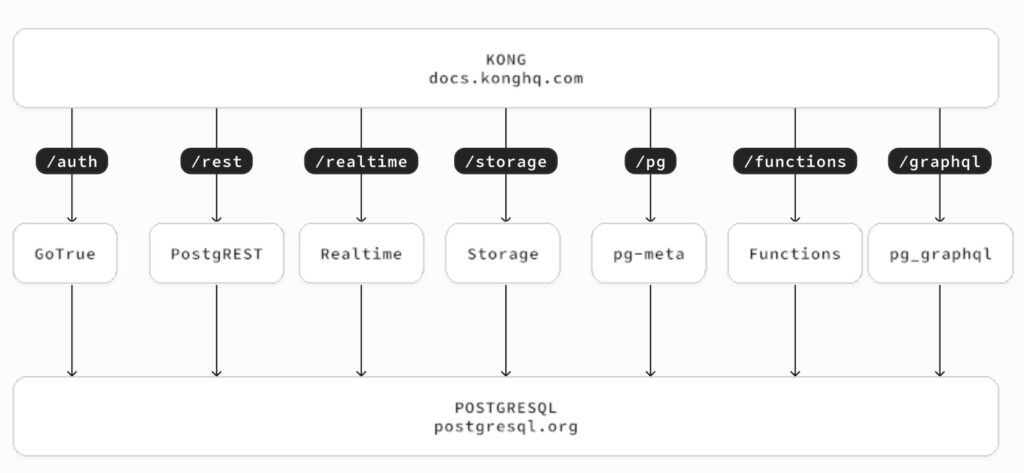
Supabase, described by its developers as an open source alternative to Google’s Firebase, has moved to general availability as well as introducing new capabilities including official support for the Swift programming language and investment in pluggable storage for Postgres via acquisition of the Oriole team.
This is “launch week” for the project, and other announcements include adding AI inference to the Supabase Edge runtime, making it easier to run AI models.
There is also a beta of Branching, the ability to create a preview environment when pull requests are opened on GitHub, including database migrations which are merged to production when the pull request is merged.
According to the post, general availability is based on confidence in the scalability of the service. Over 1 million databases are now running on the managed platform, with customers including 1Password and Mozilla, which uses it for MDN Search.
OrioleDB is a replacement storage engine for PostgreSQL, designed to be distributed. It is currently in public beta. CEO and co-founder Paul Copplestone posted that the Oriole team is joining the Supabase project to build a faster storage engine for Postgres, as well as working on pluggable storage for Postgres in general. Copplestone gave assurance that “we’ll work with the Oriole team and Postgres community with the goal of upstreaming patches so that Oriole can be used with any Postgres installation.”
Swift language support is aimed at developers on Apple platforms and adds libraries which are now officially supported. A new guide shows how to build a user management app with Swift and SwiftUI, supporting user authentication and storage in a Postgres database.
Swift joins JavaScript and Flutter as fully supported languages, with Python, C# and Kotlin on offer as community contributions.
Supabase is open source on GitHub and developers are told that “all of our public repos have OSI-compliant licenses. We have no plans to change this.” The company behind it has a business based on hosting, with a limited free plan and then hosting from $25 per month.

Supabase first appeared just over 4 years ago, when Copplestone introduced it as a realtime server that “allows you to listen to changes in your database via websockets.” The core of Supabase is PostgreSQL, with added APIs for authentication, REST (Representational State Transfer) API, websocket engine using the Elixir language, storage API compatible with AWS S3 (Simple Storage Service), Edge functions based on Deno, API gateway based on Kong, and a dashboard for management.
Developer comments on the service are mixed. “Supabase let us launch fast which was amazing. Super powerful Postgres features without the pain of self-hosting,” said one, who added: “Functions have a critical bug that prevent us from using in development so we decided to move to our own API servers,” and then, “we were able to completely move off of it over the course of a few weeks, but continue using the self-hosted version. This is a huge benefit over something like Firebase or Amplify.”
The move to self-hosting in this case was not for cost reasons, but rather performance, with this and some others complaining of excessive latency. The open source nature of the project though gives portability for those concerned about lock-in as well as the potential for the community to fix issues.
